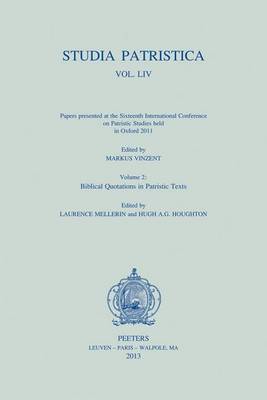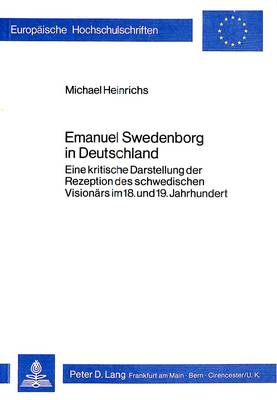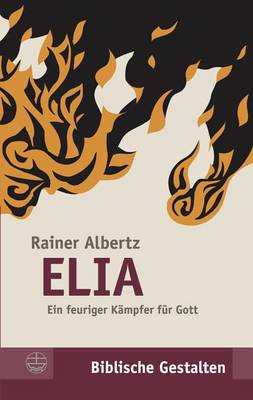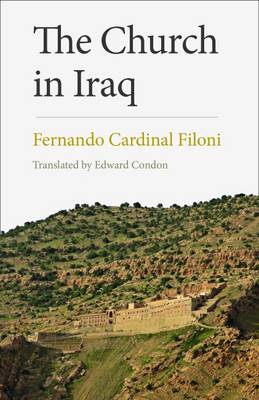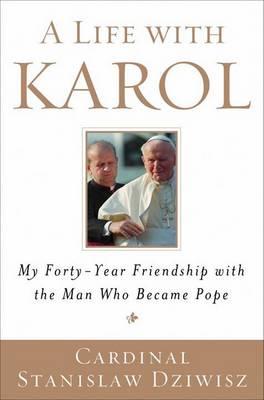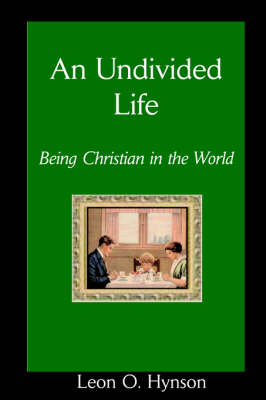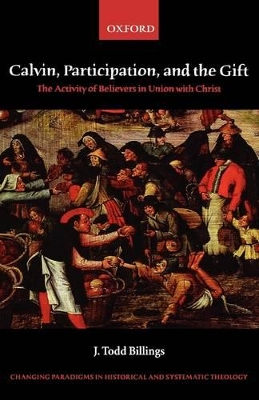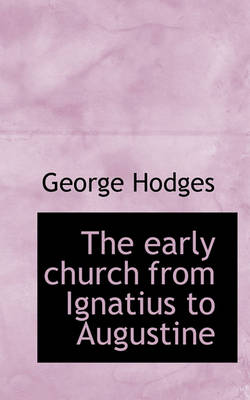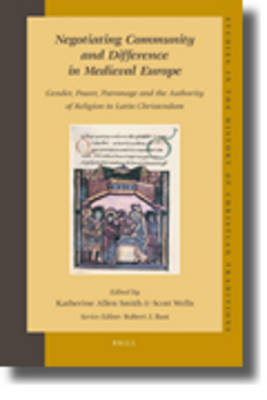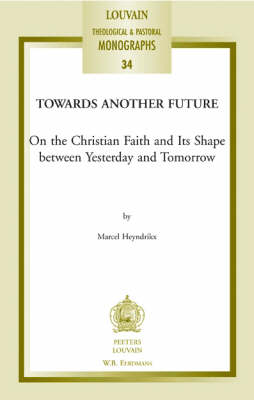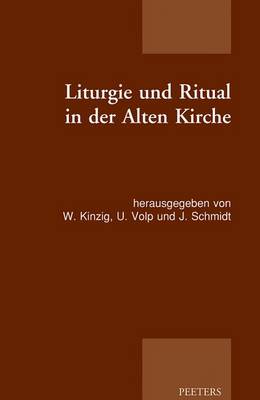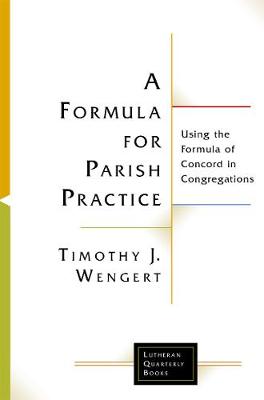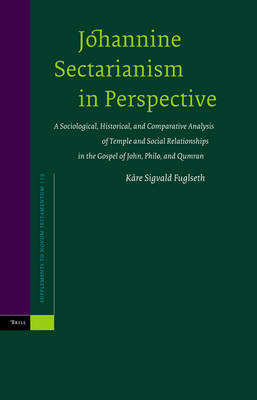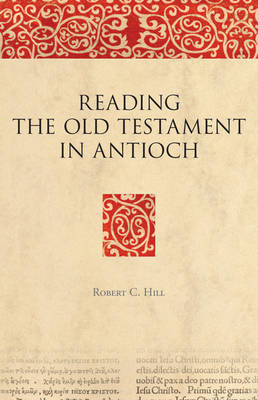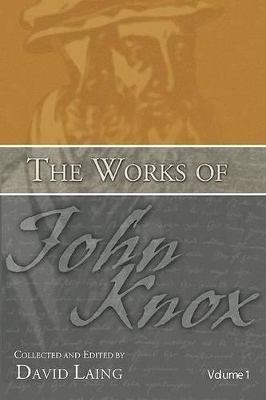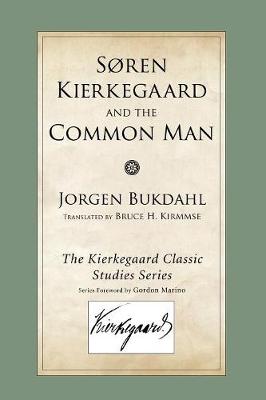Patericon Aethiopice (Corpus Scriptorum Christianorum Orientalium, Scriptores Aethiopici, v.54)
by V. Arras
Emanuel Swedenborg in Deutschland (Europaeische Hochschulschriften / European University Studie, #47)
by Michael Heinrichs
Emanuel Swedenborg, wer kennt ihn heute noch? Wer weiss, dass dieser schwedische Polyhistor tiefe Spuren im europaischen Geistesleben hinterlassen hat? Im Verlauf des Buches soll erklart werden, wie deutsche Philosophen, Theologen und Literaten den Schweden rezipiert haben. Dabei wird aber auch die Frage gestellt, ob man wirklich Swedenborg als den originellen Theosophen ansehen kann, wenn man seine Lehre im Zusammenhang mit der europaischen Philosophie und Theologie sieht. Denn allein von daher...
The persecution of the church in Iraq is one of the great tragedies of the twenty-first century. In this short, yet sweeping account, Cardinal Filoni, the former Papal Nuncio to Iraq, shows us the people and the faith in the land of Abraham and Babylon, a region that has been home to Persians, Parthians, Byzantines, Mongols, Ottomans, and more. This is the compelling and rich history of the Christian communities in a land that was once the frontier between Rome and Persia, for centuries the cros...
Calvin, Participation, and the Gift (Changing Paradigms in Historical and Systematic Theology)
by J. Todd Billings
Is the God of Calvin a fountain of blessing, or a forceful tyrant? Is Calvin's view of God coercive, leaving no place for the human qua human in redemption? These are perennial questions about Calvin's theology which have been given new life by Gift theologians such as John Milbank, Graham Ward, and Stephen Webb. J. Todd Billings addresses these questions by exploring Calvin's theology of `participation in Christ'. He argues that Calvin's theology of `participation' gives a positive place to th...
Negotiating Community and Difference in Medieval Europe (Studies in the History of Christian Traditions, #142)
This collection builds on the foundational work of Penelope D. Johnson, John Boswell's most influential student outside queer studies, on integration and segregation in medieval Christianity. It documents the multiple strategies by which medieval people constructed identities and, in the process, wove the boundaries of inclusion and exclusion among various individuals and groups. The collection adopts an interdisciplinary approach, encompassing historical, art historical, and literary perpsectiv...
Towards Another Future (Louvian Theological & Pastoral Monographs, v.34)
by M. Heyndrikx
From the beginning, the gospel has been understood and articulated in terms borrowed from the cultural context in which it finds itself. For the largest part of the church's history, the prevailing context has worked with a static vision of humanity and the world. Theology and philosophy perpetuated this static worldview. This was both legitimate and necessary as long as the culture was shaped by such a worldview. Since the advent of modernity, however, this is no longer the case. The advent of...
Liturgie Und Ritual in Der Alten Kirche (Patristic Studies, v.11)
Die Liturgiegeschichte der Alten Kirche hat durch die Aufnahme ritualtheoretischer Uberlegungen aus dem Bereich der Anthropologie und Ethnologie sowie durch die starkere Beachtung theologiegeschichtlicher Reflexe im Vollzug des Gottesdienstes in den letzten Jahren neue Impulse erfahren. Sie pragen auch die Beitrage dieses Bandes, die aus der Tagung der Patristischen Arbeitsgemeinschaft im Januar 2009 in Bonn hervorgegangen sind. Ein zeitlicher Schwerpunkt liegt dabei auf der Geschichte des Gotte...
A Formula for Parish Practice (Lutheran Quarterly Books)
by Timothy J. Wengert
This book combines a rich description of the (Lutheran) Formula of Concord (1577) with experiences in today's Lutheran parishes to demonstrate how confessional texts may still come to life in modern Christian congregations. Timothy Wengert takes the Formula of Concord, traditionally used as ammunition in doctrinal disagreements, back to its historical home, the local congregation, giving pastors, students, and theologians a glimpse into the original debates over each article. The most up-to-date...
Johannine Sectarianism in Perspective (Novum Testamentum, Supplements, #119)
by Kare Sigvald Fuglseth
The central aim of the investigation is to evaluate the claim that the Gospel of John was a product of a 'sectarian' milieu. Fuglseth is using methods primarily derived from sociology and the study of new religious movements today. He discusses in particular the 'cult'-model as an alternative to 'sect,' and compares the Johannine texts with texts from two contemporary milieus: Philo and the Dead Sea Scrolls. The thesis is embedded in a comprehensive survey of research and discussions of methods...
Reading the Old Testament in Antioch (Bible in Ancient Christianity, #5)
by Robert C. Hill
In the period between the councils of Nicea and Chalcedon in the fourth and fifth centuries, the faithful in the churches of the ecclesiastical district of Antioch were the beneficiaries of the ministry of the Word from distinguished pastors. Included in this ministry were homilies on the Old Testament by John Chrysostom and written commentaries by his mentor Diodore and his fellow student Theodore, and later by Theodoret. Though the biblical text was admittedly Jewish in origin, "the text and t...
Soren Kierkegaard and the Common Man (Kierkegaard Classic Studies)
by Jorgen Bukdahl
The successive sets of Studia Patristica contain papers delivered at the International Conferences on Patristic Studies, which meet for a week once every four years in Oxford. These papers range over the whole field, both East and West, from the second century to a section on the Nachleben of the Fathers. The majority are short papers dealing with some small and manageable point; they raise and sometimes resolve questions about the authenticity of documents, dates of events, and such like, and s...
The successive sets of Studia Patristica contain papers delivered at the International Conferences on Patristic Studies, which meet for a week once every four years in Oxford. These papers range over the whole field, both East and West, from the second century to a section on the Nachleben of the Fathers. The majority are short papers dealing with some small and manageable point; they raise and sometimes resolve questions about the authenticity of documents, dates of events, and such like, and s...
The successive sets of Studia Patristica contain papers delivered at the International Conferences on Patristic Studies, which meet for a week once every four years in Oxford. These papers range over the whole field, both East and West, from the second century to a section on the Nachleben of the Fathers. The majority are short papers dealing with some small and manageable point; they raise and sometimes resolve questions about the authenticity of documents, dates of events, and such like, and s...
